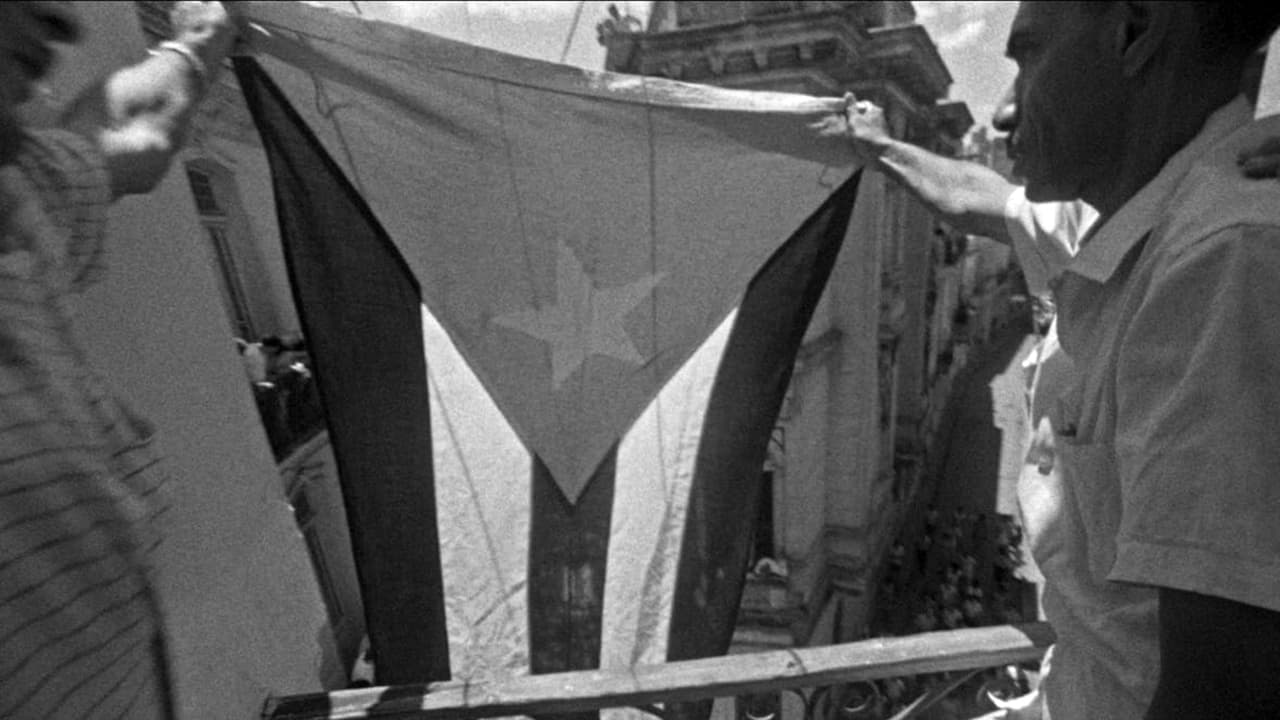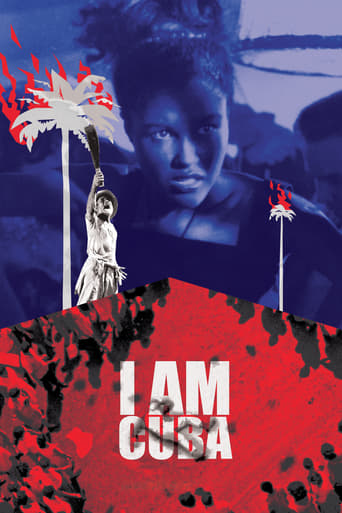

Simply A Masterpiece
... View MoreI was totally surprised at how great this film.You could feel your paranoia rise as the film went on and as you gradually learned the details of the real situation.
... View MoreIt is both painfully honest and laugh-out-loud funny at the same time.
... View MoreAll of these films share one commonality, that being a kind of emotional center that humanizes a cast of monsters.
... View MoreSuper cool film about Cuba during the corrupt Batista time. I am a photography instructor and loved the photography and the story line of the movie. the black and white filming is excellent. The film at various time uses in-fa red film, which has characteristic of the green plants showing white and the sky dark with the clouds staying white. Loved it. The film starts with a groovy bar scene and crazy music, then turns sad as a American picks up a girl that is very poor and she takes him back to her stick house. It ends bad for her. The movie switches to some poor field workers,(campesinos), who lose the farm. Next to disenchanted students and the start of the revolution. the film finishes with Castro's rebels. Excellent
... View More"I am Cuba" is propaganda and cannot be taken very seriously as far as its idyllic view of Cuba is concerned. The Batista years and Americans in the film are almost cartoon-like in their simplicity-- it was not meant as non-fiction but as a way to drum up support for the Castro regime among the common people. But, if you look at the film for its artistry, it is very nice. It features some very creative and artsy camera-work--and so despite being in black & white, it looks great. And, while the style film wasn't exactly to my taste (with its lyrical and poetic qualities), it was well done. So, overall, I'd say that this Soviet-Cuban co-production is a pretty film and is worth seeing-- just don't take it as a snapshot picture or as pure history.By the way, because the film was not intended for American audiences, it sure would have been nice for the DVD to have captioning for the Americans. This is because I couldn't understand a lot of what they were saying--and I assume many other English speakers might also have this difficulty.
... View MoreCo-produced by the USSR, I AM CUBA (1964) is pretty heavy-handed propaganda for Fidel Castro's communist regime, but it is full of innovative camera-work and other artistic merits.The storytelling is effective and the scenes are gritty and real, shot on location throughout Cuba. Director Mikhail Kalatozov's floating camera produces some of the most astonishing tracking shots you'll ever see.Running at nearly two and a half hours, the film is broken up into four segments, each emphasizing a different aspect of Cuba at the time of its political upheaval in the 1950s. The first segment is about the evils of the decadent capitalist lifestyle, the second is about the plight of the poor laborers, the third is about the popular support of the revolutionary ideals (emphasizing the brutality of the current regime), and the fourth focuses on the guerrilla soldiers fighting the good fight for all of Cuba.The imagery is brilliant and the film presents its historical viewpoint with the emotional charge of, say, Eisenstein's BATTLESHIP POTEMKIN (1925). An interesting watch, although I tend to cringe when I see such unflattering portrayals of Americans in foreign films (though it's amusing in a way to see how we're perceived by others). The island of Cuba is beautiful.
... View MoreThe cameras are flying in this remarkable display of cinematic poetry that elevates I Am Cuba's heavy handed and sometimes mawkish propaganda message to an effective and inspiring pedestal. Like Eisenstein's Battleship Potemkin and Riefenstahl's Triumph of the Will it is both visually mesmerizing and immediate to the early glories and heady times of change through revolution before the total onset of the totalitarian dictatorships that followed in each country.The dictatorial and brutal regime of Fulgencio Batista is in it's final days but the exploitation and repression of the Cuban people living amid poverty continues. The somber sultry beauty of the rhythmic isle we float through is suddenly thrashed by the crass noise of sloppy rock and roll poolside amid tall hotels and voluptuous swim suit models. Other interrelated stories feature a woman forced through economics to peddle herself to unctuous American businessmen and along with a student activist fight off a platoon of loutish US servicemen. Outside the city the farmers are also exploited by United Fruit Company and attacked indiscriminately by government planes. The cause is clear for all; they must rise up against the tyranny. This point is gracefully and heroically conveyed from end to end in I am Cuba.Matching their masterful artistry displayed in the powerful and moving The Cranes are Flying, Soviet director Mikhail Kolatozov with cinematographer Sergei Uresevsky blueprint some audacious camera acrobatics. With some of the finest tracking and crane shots I have ever witnessed (the hotel pool scene and the funeral for the student activist are as good as it gets in any film) I could rhapsodize endlessly on its form but I am Cuba's content also offers some fascinating incite to time and viewpoint. The film is anti American Imperialist, Capitalist, Western Influence and Coca Cola with a hint of anti-semitism thrown in but even with this stilted viewpoint I am Cuba remains a powerful and moving document on the struggle against government repression.All leaders of the Twentieth Century understood the power of film and its possibilities to reach, persuade and motivate the masses to their way of thinking. Propaganda is an indispensable tool to all who hold power and film is a perfect delivery system. Democracies (The 49th Parallel, Purple Heart) as well as Dictatorships (see above) and anyone else interested in consolidating and maintaining power would be lost without it. I am Cuba is a magnificent and passionate tract in that vein that clearly does Castro proud but with nuances in ideology would have done the same for Roosevelt Churchill or Robert Mugabe. In the case of I am Cuba it's the singer not the song that shines.
... View More